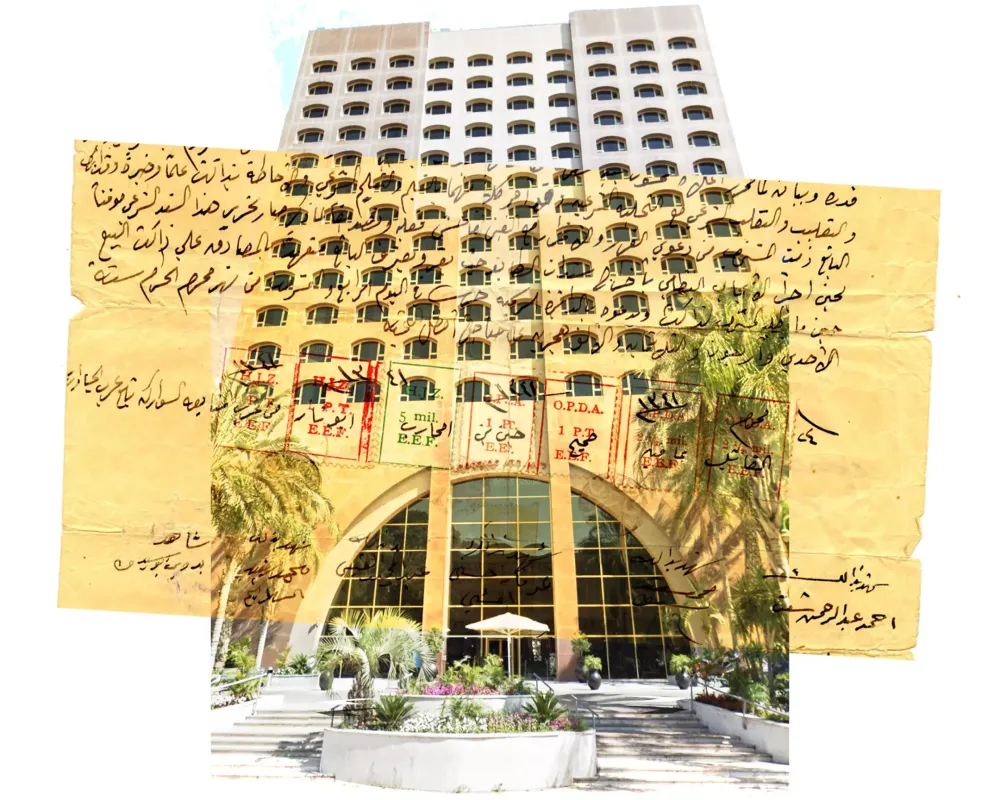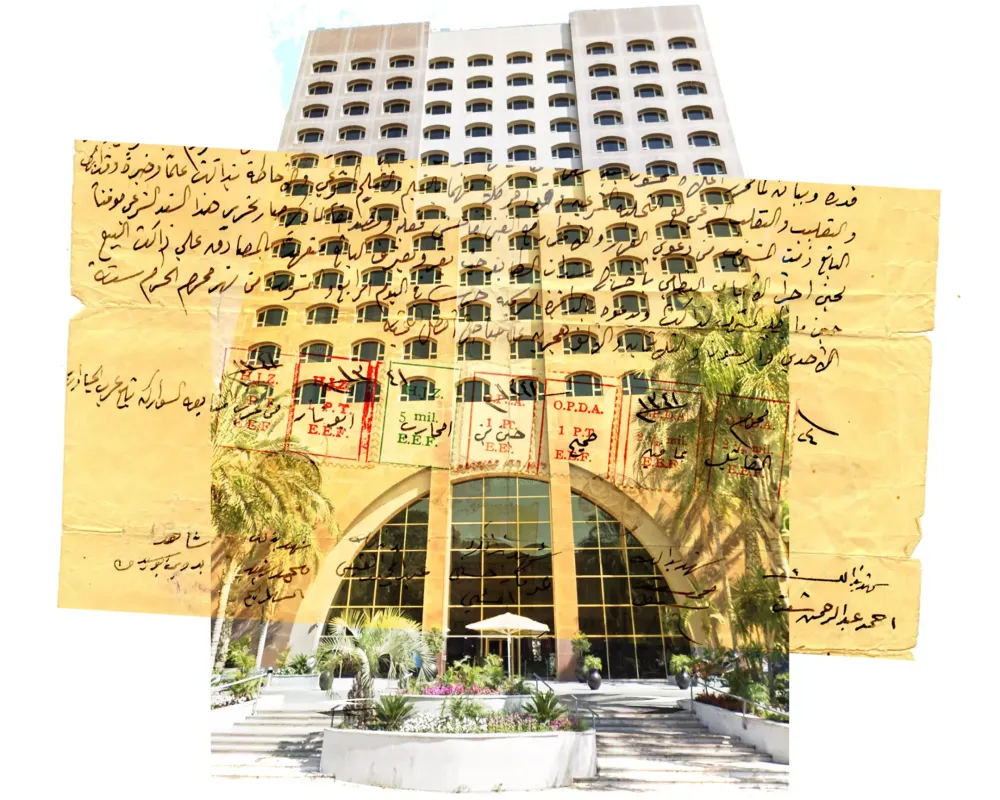
Washington, DC —
A ground breaking archive documenting extensive Palestinian land ownership prior to the 1948 Nakba was unveiled May 15, 2025, at the National Press Club in Washington, DC, at a press event co-sponsored by the Bseiso Family Archive (BFA) and Arab Center Washington DC (ACW). Compiled and curated by Adel Bseiso—grandson of Mahrous Mustafa Bseiso, a prominent landowner and businessman in southern Palestine—the BFA constitutes the largest authenticated collection of Palestinian land ownership documents belonging to a single family.
The event began with a keynote presentation from Founder and Creator of the BFA, Adel Bseiso. His presentation was followed by a panel discussion moderated by Khalil E. Jahshan, Executive Director of ACW, during which a panel of experts addressed the broader historical context of the Nakba, relevant legal frameworks, and the enduring political and global policy implications of Palestinian displacement.
Panelists included Hanna Alshaikh, Palestine Project Coordinator, ACW; and PhD candidate in History and Middle East Studies, Harvard University
Samah Elhajibrahim, PhD, Political Science Lecturer
Jonathan Kuttab, Human Rights Lawyer and Non-Resident Fellow, ACW
Bseiso unveiled the archive and shared the extraordinary story of his family’s legacy, including how their land in and around Beersheba was transformed in the early 20th century from desert terrain into productive farmland, gardens, and mills.
“In 2023, after years of curation and two years of discussions, we reached an agreement with Columbia University to house the BFA within the Edward Said Modern Arab Studies collection,” said Bseiso. “The result is the first Digital Library Collection (DLC) of its kind, preserving and showcasing these rare documents.
We have launched our online portal, BFArchive.org, providing unprecedented access for researchers and the public to understand our mission and the overwhelming legal evidence of ownership and dispossession.”
The collection includes Hijjeh deeds, tax receipts, maps, surveys, and official correspondence. These materials not only confirm the Bseiso family’s extensive holdings but also offer a rare window into a legal system that was systematically dismantled in the creation of the Israeli state. They serve as irrefutable evidence of property theft and forced displacement endured by countless Palestinians.
Jonathan Kuttab, a leading expert on Palestinian land law, provided legal context.
He explained how land transactions in Ottoman and British Mandate Palestine were documented through tax records, oral testimonies, and detailed Hijjeh deeds—many of which included named witnesses and notarized seals. Kuttab also described the Tapu registration system, which involved formal validation by surveyors and judges to determine boundaries and confirm rightful ownership.
“These records are legally and historically significant,” said Kuttab. “They demonstrate how Palestinians maintained land ownership within a functioning legal structure, even amid colonial governance. They also reveal how land was systematically seized or falsified through dubious legal maneuvers after 1948.”
The archive reclaims not only a personal and familial history but also a broader Palestinian narrative. ACW Executive Director Khalil Jahshan emphasized the symbolic and practical importance of the BFA in countering decades of historical erasure:
“ACW is proud to co-sponsor this press conference and views the Bseiso family’s case as a vivid representation of what the entire Palestinian population experienced since the Nakba of 1948. We hope this personal family archive and the story it tells will support those seeking to understand Palestinian politics today—politics that can only be fully grasped in light of this history of dispossession and dislocation.”
Hanna Alshaikh, Palestine Project Coordinator at ACW, expanded on the archive’s broader implications:
“The Nakba is not just a past event—it is an ongoing process of displacement, land theft, and erasure. The Bseiso Family Archive stands as a powerful model of resistance, preserving the legal, political, and personal truths that Israel has long sought to destroy through the obliteration of archives, libraries, and research institutions.”
Samah Elhajibrahim, a political science lecturer and scholar of refugee studies, offered both scholarly and personal reflections. She spoke about her own displacement in Lebanon and the critical role archives like the BFA play in documenting the Nakba as a living reality.
“The Palestinian people are actively reclaiming our historical and political narrative,” said Elhajibrahim. “This archive provides tools for justice and remembrance—and reminds the world that the right to return is not only symbolic; it is substantiated and documented.”
The Bseiso Family Archive aims to serve as a model for other Palestinian families and researchers to reclaim legal and historical documentation that challenges dominant narratives of dispossession. The unveiling coincides with renewed global attention to the Palestinian cause, as millions around the world protest, demand justice, and recognize Palestine’s right to exist.
“Our time is coming,” Bseiso concluded. “This archive is not just about the past—it’s about planting the seeds for justice, reparation, and the future of Palestine.”
